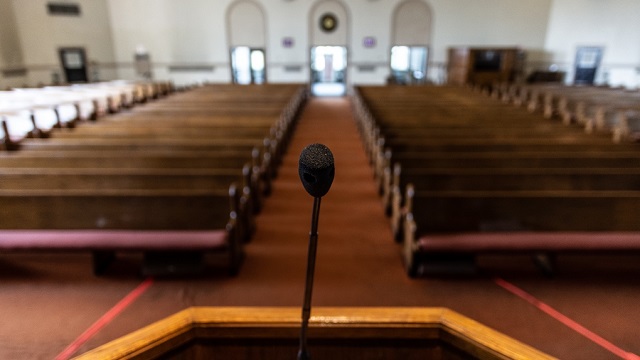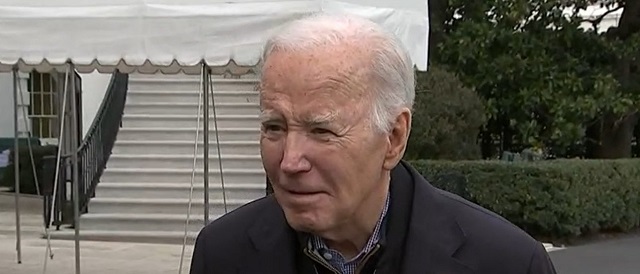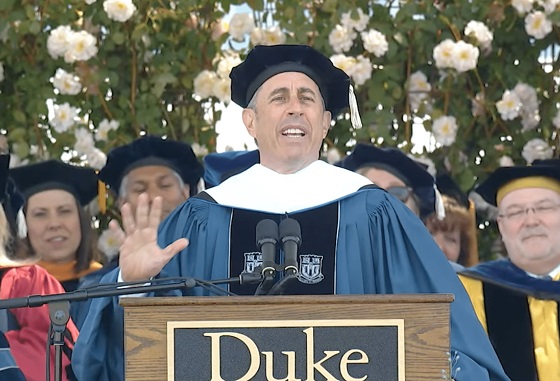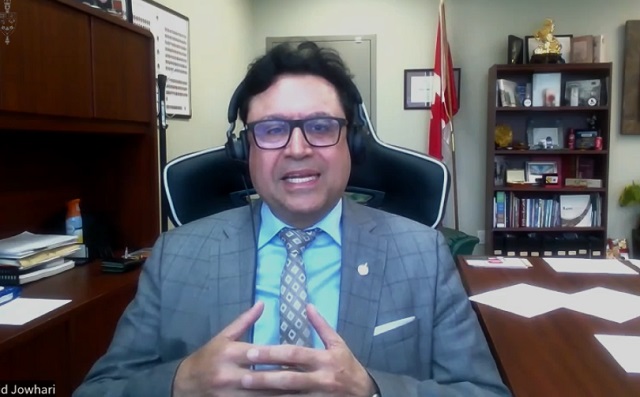Censorship Industrial Complex
“Minority Report”: The Sequel. A warning to the Canadian Church

From the Frontier Centre for Pubic Policy
In the 2002 futuristic movie, “Minority Report,” viewers are introduced to a ground-breaking technology that allows law enforcement to preview a crime before it is committed. Then this determination becomes the basis for the arrest and the sentencing of the “pre-crime” perpetrator.
In a case of life imitating art, on February 26, the Canadian government tabled legislation containing provisions that are eerily like the plot imagined in Tom Cruise’s blockbuster.
The proposed legislation should be of great concern to churches and pastors who may face unprecedented legal exposure if it is passed.
Bill C-63, the Online Harms Act, seeks to “promote online safety.” The Act endeavours, in part, to protect children from online sexual exploitation and requires the mandatory reporting of online child pornography by internet providers. So far, so good.
But the proverbial devil is lurking in the details of the provisions pertaining to online hate speech, which are simply breathtaking.
The Act represents what many consider to be the most dangerous assault on free speech this country has ever seen, prompting Canadian novelist, Margaret Atwood, to refer to the proposed legislation as “Orwellian.”
This bill would not only have a glacial effect on free speech, but it would also trigger an open season on religious organizations that do not align with mainstream dogma.
Here are some of the reasons behind this apocalyptic assessment of this piece of legislation.
The bill defines hate speech as speech that “is likely to foment detestation or vilification of an individual or group of individuals on the basis of a prohibited ground of discrimination.”
This definition is so vague, ambiguous, and far reaching that it could apply to any opinion that diverges from the government-sanctioned media narrative.
The responsibility of judging complaints would be lodged with the Human Rights Commission. This fact alone is deeply worrisome, as the threshold for deciding guilt is much lower in the Human Rights Tribunal than in a criminal court, where a person must be found guilty beyond a reasonable doubt.
Plaintiffs could file their complaints anonymously without incurring any legal costs. Defendants, on the other hand, would be bound to retain legal counsel at considerable expense to them.
Should they win their case, the plaintiffs stand to be awarded up to $20,000. The defendants could be imposed an additional fine of up to $50,000. Should a legal violation be considered to have been motivated by hate, the defendants could also face life imprisonment!
The incontrovertible proof that Bill C-63 is not about protecting children but strangling free speech resides in what is now ironically referred to as the “Minority Report” provision.
As unhinged as it sounds, the legislation states that if a member of the public has grounds to believe that someone is likely to engage in hateful speech, that person can appeal to a provincial judge who may then subject the defendant to house arrest and other restrictions.
Human nature being what it is, there is no telling the number of people who will be incentivized to file complaints knowing they have much to gain and nothing to lose.
Conservative churches would become instant targets in the tsunami of human rights violation initiatives that the proposed legislation would trigger.
In response, churches may decide to play it safe by restricting their services to in-person participation or by self-censuring.
While either choice would no doubt be welcome by a government that wants to silence those who hold “unacceptable views,” to quote Prime Minister Justin Trudeau, such restrictions would no doubt prove to be detrimental to the churches and the common good.
The proposed legislation is not about protecting children. It’s about unleashing the mob against those who would oppose an agenda that is already proving to be an existential threat to liberal society.
Bill C-63 is currently at the nexus of the fight to preserve our most fundamental freedoms, Canadian democracy, and the well-being of future generations.
Churches have a window of opportunity to voice their opposition to this appalling piece of legislation.
What can be done?
First, be informed. Videos posted by the Canadian Constitution Foundation are a great place to start.
Second, promote congregational awareness. Church leaders can no longer pretend that such issues are beyond the scope of their pulpit. To denounce injustice is indeed part and parcel of the church’s prophetic mandate.
Third, church members should contact their member of parliament to express their opposition to Bill C-63.
Canadian churches have historically chosen to remain on the far edges of the culture war currently raging in the Western world. But if Bill C-63 receives royal assent, these same churches may soon unwittingly find themselves in the middle of the very battlefield they so vigorously sought to avoid.
Pierre Gilbert is Associate Professor Emeritus at Canadian Mennonite University.
Censorship Industrial Complex
Australia passes digital ID bill, raising fears of government surveillance without accountability

From LifeSiteNews
By David James
Critics argue the legislation, enacted under the guise of increased security, ramps up government surveillance and control, with no accountability mechanisms for public sector misuse.
The Australian Parliament has passed the Digital ID Bill 2024 and Digital ID (Transitional and Consequential Provisions) Bill 2024 which, it claims, will provide “certainty” for the expansion of the existing Australian government digital ID system.
The move is being presented as a way to improve “privacy and security” for people when interacting online by “verifying” users’ identities. The government claims that the legislation will reduce fraud and other malpractice by private actors, but the bill says nothing about the public actors, the government. The implication is that that the public sector will never do anything wrong with its increased powers, raising the suspicion that it is yet another move by state and federal governments to increase surveillance and control over the lives of citizens.
Australia is a paternalistic society and there is no mechanism to hold the executive branch of government accountable – indeed the possibility is rarely raised. There is thus nothing to stop more intrusions into people’s privacy by the government.
Commenting on the passing of the bill, Queensland Senator Malcolm Roberts from the One Nation Party said that, while the voluntary system has been presented as a measure for security and convenience it could lead to significant privacy breaches, cyber-attacks, and government overreach. He described it as a potential attack on Australians’ “freedom, privacy, and way of life,” especially if it eventually becomes mandatory.
Roberts pointed to the Digital ID bill, the Online Safety Act, the Identity Services Verification Act, and the Misinformation and Disinformation Bill as elements of what looks like a coordinated plan by the federal government “to identify, punish and imprison anyone who resists this slide back into serfdom.” In the initial inquiry into the Digital ID bill, he said, the Human Rights Commission “drew attention to the lack of protection of privacy and human rights in the bill,” but it was ignored. Roberts added that the bill is very similar to legislation being implemented in other Western nations.
A significant proportion of the Australian population has concluded that politicians and the public sector cannot be trusted and that they fail to scrutinize their own actions. As if to underline this unaccountability, the Digital ID bill was passed using “tricks used to stifle debate and public discussion,” according to former federal senator Craig Kelly. He said on X (formerly Twitter) that the way the bill was passed was “contrary to precedent, the spirit of the Constitution and [the] Westminster tradition.”
“Labor introduced the Digital ID in the Senate (the House of review) instead of the House of Representatives,” Kelly wrote. “Then they guillotined debate in the Senate. And in House of Representatives, Labor shifted debate to the Federation Chamber where the Liberals put up token resistance with only one Liberal MP and two National MP’s bothering to speak on the Bill – and they didn’t even try any amendments to protect privacy or to try and safeguard against it being made compulsory.”
🔥🔥🔥BREAKING 😥😥😥
At 4.50pm this afternoon, and with only token opposition from the Liberals & Nationals the Digital ID Bill was passed by the Parliament.
A sad day for Australia, as the nation marches further down the road towards a totalitarian society.
And never… pic.twitter.com/GjVtIxwK0t
— Craig Kelly (@CraigKellyPHON) May 16, 2024
The aggressive government actions during the COVID crisis have shown just how abusive Australian politicians and the public sector can be, and how few ways there are for citizens to protect themselves. The restrictions on free speech, free movement, and freedom of thought were extreme.
The government mendacity continues – at a time when federal laws against “disinformation and misinformation” are being debated. There is constant propaganda in government-funded media outlets about what an effective job was done against the “pandemic” by pursuing lockdowns and mass vaccination. It is false; there was no pandemic. The Australian Bureau of Statistics found that 2020 and 2021 had the lowest number of deaths from respiratory diseases since records have been kept.
The federal government, in a statement, is giving the impression that the move is merely a way to protect vulnerable Australians, to give certainty for providers and services, and to provide transparency in order “to build public trust.” But what is not said is more important than what is said. There is no mechanism for Australians to redress wrongs committed by the government.
What should happen is something that has never existed in Australia: the establishment of a way for Australians to hold the public sector accountable and stop their governments becoming a menace, as occurred during the “pandemic.” Unless public servants are at risk of being penalized, or at least of having their actions constrained, there is a strong likelihood that fears about the Digital ID Bill will ultimately be realized.
Censorship Industrial Complex
Jim Jordan Exposes Biden’s Censorship-Industrial Complex

 From the Daily Caller News Foundation
From the Daily Caller News Foundation
By TOM HEBERT
“Internal talking points prepared by Amazon,” says the report, “included the question: ‘Is the [Biden] Admin asking us to remove books, or are they more concerned about search results/order (or both).’”
High-ranking Biden White House operatives coerced Big Tech companies into censoring posts critical of the Biden administration or those that spread so-called “misinformation” about COVID-19. A blockbuster new report from the House Judiciary Committee, which is chaired by Rep. Jim Jordan, exposes how the Biden administration weaponized Big Tech against conservatives.
“The report,” the committee said when it released it, “details the months-long campaign by the Biden White House to coerce large companies, namely Facebook, Google, and Amazon, to censor books, videos, posts, and other content online. By the end of 2021, Facebook, YouTube, and Amazon changed their content moderation policies in ways that were directly responsive to criticism from the Biden Administration.”
This report is the result of a multi-year investigation by the Judiciary Committee’s Select Subcommittee on the Weaponization of the Federal Government. The evidence, including tens of thousands of emails and other non-public documents, shows a disturbing pattern of Biden officials pressuring Big Tech companies into censoring Americans online.
Shortly after Biden’s inauguration in 2021, then-White House Digital Director Rob Flaherty began haranguing top Facebook officials for more detail on their policies for taking down COVID-19 related posts. “In February 2021,” says the report, “Facebook increased its censorship of anti-vaccine content as well as the lab leak theory of the origin of the virus because of ‘tense conversations with the new [Biden] Administration’ and as part of an effort to be responsive to the Biden White House’s exhortations to ‘do more’ to combat alleged misinformation.”
As 2021 progressed, the White House demanded to know what Facebook was doing to censor “borderline content,” posts that did not violate Facebook’s content moderation policies but were nevertheless objectionable to Biden officials. “Facebook would meet again with the Biden White House on March 12, 2021, to discuss how it was approaching ‘borderline content,’ that is, content that did not violate its policies,” says the report.
“Facebook walked through its policies and enforcement practices for violative and borderline content,” it says. “But call notes reveal that throughout the meeting, Flaherty continued to ask about the removal and reduction of content above all else.”
Unsatisfied with Facebook’s unwillingness to “play ball,” Flaherty and the White House played hard ball. On July 16, 2021, a reporter asked Biden: “On Covid misinformation, what’s your message to platforms like Facebook?” Biden responded: “They’re killing people.”
In response to the intense pressure from the White House, Facebook went on to change their content moderation policies and censored posts about vaccine hesitancy and the lab-leak theory.
Facebook was not the only social media platform that Biden officials pressured. In April 2021, Flaherty reached out to YouTube with a litany of questions about YouTube’s efforts to censor borderline content. “Flaherty’s email was particularly focused on how YouTube handled non-violative ‘borderline’ content,” says the report. “These requests were prefaced by stating the Biden White House wanted ‘to be sure that you have a handle on vaccine hesitancy generally and are working toward making the problem better’ and that this ‘is a concern that is shared at the highest (and I mean highest) level of the [White House].’”
After Flaherty succeeded in making YouTube change its content moderation policies “to remove content that questioned the safety or efficacy of COVID-19 vaccines,” other Biden bureaucrats started to pester YouTube employees to clamp down on other content. In March 2022, according to the committee report, former Biden advisor Tim Wu asked for a meeting with Google employees to discuss “Russian misinformation/disinformation” and “airline competition.”
Another staffer communicated with YouTube about abortion-related content. “On July 14, 2022, YouTube Government Affairs staff contacted White House personnel to brief them on ‘updates related to addressing reproductive health misinformation on YouTube,’ to which White House staff responded, saying that they were ‘specifically interested in abortion,’” said the report.
Biden officials clearly sought to censor content they perceived as politically damaging to Biden.
The report also shows the White House’s obsession suppressing books that they disagreed with. In March 2021, the Biden White House emailed an Amazon executive “asking to have a discussion regarding the ‘high levels of propaganda and misinformation and disinformation at Amazon.’”
“Internal talking points prepared by Amazon,” says the report, “included the question: ‘Is the [Biden] Admin asking us to remove books, or are they more concerned about search results/order (or both).’”
There are two important takeaways from this report.
One, the Biden administration sought to impose a censorship regime through Big Tech to benefit the president politically.
Two, Congress should act to prevent future government-directed censorship of American speech. There are numerous bills that would address this problem. The House passed the “Protecting Speech from Government Interference Act” last year, legislation that would ban bureaucrats from advocating for censorship of viewpoints. The “Free Speech Protection Act” imposes penalties on bureaucrats who censor speech, and the “Censorship Accountability Act” would allow Americans to sue bureaucrats who violate their First Amendment rights.
The Biden administration has displayed an appalling amount of contempt for American free speech. Exposing Biden’s censorship-industrial complex is an important first step toward ensuring that unelected bureaucrats do not have a veto over what we say online.
Tom Hebert is Director of Competition and Regulatory Policy at Americans for Tax Reform and executive director of the Open Competition Center.
-

 Bruce Dowbiggin20 hours ago
Bruce Dowbiggin20 hours agoLather, Rinse, Repeat: Recycling Coaches In The NHL
-

 Automotive12 hours ago
Automotive12 hours agoThe EV battery ‘catch-22’
-

 Censorship Industrial Complex1 day ago
Censorship Industrial Complex1 day agoAustralia passes digital ID bill, raising fears of government surveillance without accountability
-

 DEI19 hours ago
DEI19 hours agoLawmakers press investigation into DEI agenda at the Pentagon
-

 Food10 hours ago
Food10 hours agoThe Bee-pocalypse: Another Scare Story the Media Got Wrong
-

 Brownstone Institute2 days ago
Brownstone Institute2 days agoEnough With These Dangerous Calculations
-

 Alberta9 hours ago
Alberta9 hours agoFree Alberta Strategy petition demanding PM Trudeau fire Steven Guilbeault passes 13,000 signatures
-

 Brownstone Institute2 days ago
Brownstone Institute2 days agoMusk Wins Latest Censorship Battle in Australia








